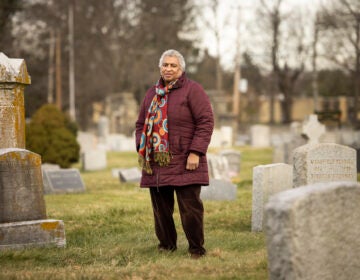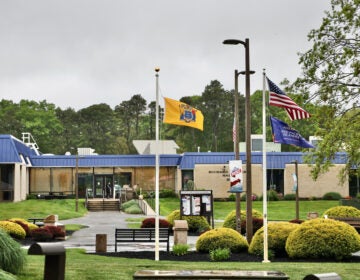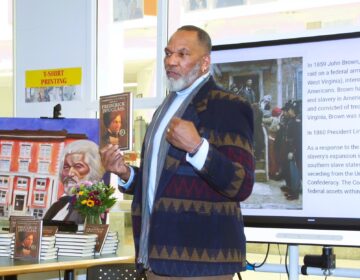N.J. law strengthening Amistad Commission aims to help students learn ‘our real history’
Changes aim to strengthen the panel by giving it more independence and ensuring that the curriculum it helps develop is used more widely in New Jersey schools.

The Rev. Ralph Abernathy, right, and Bishop Julian Smith, left, flank Dr. Martin Luther King, Jr., during a civil rights march in Memphis, Tenn., March 28, 1968. (AP Photo/Jack Thornell)
The Amistad Commission was founded in New Jersey in 2002 to bolster the public education curriculum around slavery and the contributions of African Americans to society.
A new state law aims to strengthen the body by giving it more independence and ensuring that the curriculum it helps develop is used more widely in New Jersey schools.
“I firmly believe that what we have created is a pathway for a much higher level of knowledge for our students about U.S. history and inclusion of all people in that history,” said Lillie Edwards, a charter commissioner of the Amistad Commission who left in 2020.
The law signed by Gov. Phil Murphy in early January gives the commission its own line item in the state budget and makes it “in but not of” the Department of Education — a bureaucratic designation that means a New Jersey agency is technically located in a given department but operates independently.
It also clarifies the earlier law by requiring boards of education to include the accomplishments of African Americans in the curriculum of “all courses on the United States.”
Assemblywoman Annette Quijano, D-Union, one of the bill’s sponsors, said a more inclusive curriculum will help students connect U.S. history to current events.
“There’s reasons why people are protesting. There’s reasons why individuals are so frustrated they just can’t take it anymore. And there are reasons why they took to the streets,” Quijano said of protests for racial justice this summer.
“I have always had an interest in making sure that students learn our real history,” Quijano added. “Sometimes, it’s uncomfortable. But it’s important, because if you don’t have that foundation, how can you look at what’s occurring now and fully understand the why?”

Get daily updates from WHYY News!
WHYY is your source for fact-based, in-depth journalism and information. As a nonprofit organization, we rely on financial support from readers like you. Please give today.





